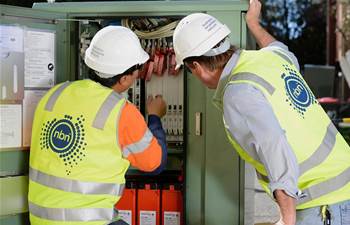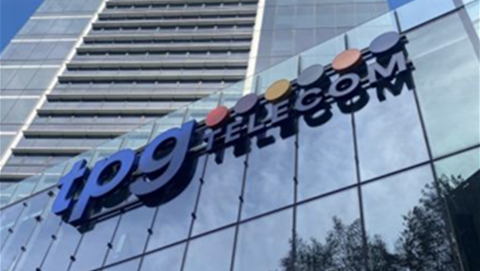NBN Co wants retail internet providers to more “actively manage” their customer bases and move the “heaviest” 50Mbps users up to higher-end plans.
Doing so would ease providers’ cost concerns, NBN Co said.
The network operator wants to avoid capping the wholesale price of its popular 50/20Mbps product, an idea that ACCC commissioner Anna Brakey yesterday asked it to “further consider”.
The ACCC favours a cap as a way to clearly differentiate 50Mbps and 100Mbps pricing, which are in danger of converging if a current price proposal is approved.
NBN Co is against a cap, arguing it “would have a significant financial impact on NBN Co and we are unable to make any further pricing concessions in relation to the 50/20 Mbps product.”
It instead argues that internet providers need to be more active in managing the type of customer using 50Mbps services - and that means convincing the heaviest users to move up to 100Mbps or more.
Under NBN Co’s price proposal, 100Mbps-plus plans will not be subject to variable bandwidth charges, and therefore could be a more economical tier to serve the heaviest users from.
However, that means internet providers will have to initiate conversations with these customers, and convince the customers themselves to pay more.
NBN Co has made this argument since mid last year, when it declared almost one-third of users were on a plan it judged to be too small, based on consumption patterns.
It doubled down in December, when it characterised a small cohort of users as free-riders.
In a letter to the ACCC, published yesterday, NBN Co made clear that it expects internet providers to take action with that cohort - and that it would provide the tools necessary to identify those users.
“For larger [providers] … NBN Co notes [they] only need to be successful in upselling a small proportion of high-usage end-users to achieve significant changes to their average usage … and hence experience meaningful cost savings,” NBN Co wrote.
“This is because a small proportion of heavy-usage end-users consume a disproportionate amount of bandwidth.”
NBN Co maintained that 27 percent of 50Mbps users should be targeted for upsell - but said that the conversion rate didn’t need to be anywhere near that.
“If [providers] were able to upsell just two percent of their heaviest users on 50Mbps, they could reduce the average usage on 50Mbps by more than 10 percent … a $2 per SIO [service in operation] saving for every customer they have on a 50Mbps service,” the operator said.
NBN Co argued it is “not unreasonable” to expect internet providers to more actively manage their customers in this way.
The company argued active customer management is what an “efficient” internet provider does.
“An efficient [provider] seeking to maximise end-user experience on any broadband network must actively manage its customer base to minimise costs, maximise use of network capacity and proactively match end-users with the right broadband plan based on usage patterns,” NBN Co wrote.
“This is true in the case of any broadband network, including NBN Co’s network.”
NBN Co said separately in a statement yesterday that it wants to encourage providers “to match customers with heavy data consumption patterns to high speed NBN plans suitable for their needs”.
iTnews sought clarification from NBN Co on why high usage patterns are being linked to a need for higher-speed services: in particular, why customers who felt their needs were met on 50Mbps plans, should be pressed into upgrading.
There have historically been issues for providers in pushing such upgrades, including that not all customers have lines capable of consistently achieving higher speeds, and that customers may not have the budget for it.
A company spokesperson told iTnews that “customers that use a lot of data are likely to have more devices, more intensive use cases or just spent more time using broadband, all of which are highly correlated with their relative willingness to pay for broadband.”
“Customers with heavier network usage will enjoy a better experience on [a] higher bandwidth product, with faster speeds and improved quality,” the NBN Co spokesperson said.




.jpg&h=140&w=231&c=1&s=0)






















